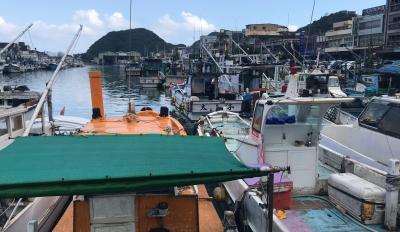
FOR IMMEDIATE RELEASE
Seafood Working Group Recommends that Taiwan be downgraded in
State Department Trafficking in Persons (TIP) Report
Washington D.C., April 1st, 2021 – The Seafood Working Group (SWG) has submitted its recommendation that Taiwan be downgraded to a Tier 2 Ranking in the U.S. Department of State’s 2021 Trafficking in Persons (TIP) Report. The recommendation is based on SWG’s research and analysis that determined Taiwan is yet to meet the minimum standards set forth in the U.S. Trafficking Victims Protection Act of 2000. The group’s submission also includes steps the Taiwan government can take to end forced labor and human trafficking in its distant water fisheries (DWF).
The group’s full findings can be found in the Comments Concerning the Ranking of Taiwan by the U.S. Department of State in the 2021 Trafficking in Persons Report.
Notable findings include:
- Taiwan’s government does not recognize human trafficking in accordance with international standards.
- The government’s lack of effective labor inspections has resulted in its inability to effectively identify trafficking victims.
- Officials routinely mishandle cases of a highly sensitive nature and fail to exercise Port State responsibility. This was particularly egregious during an alleged murder case where the vessel, Da Wang, was allowed to sail out of port despite an ongoing investigation.
- A discriminatory legal framework that offers migrant workers in DWF lesser rights and protections than Taiwanese workers.
- Extremely long periods of work at sea, ranging from six months to three years.
- Over 70 percent of migrant seafarers, including fishers, are working on vessels with no shower facilities.
- Taiwanese own over 230 Flag of Convenience (FoC) vessels, which are purposefully flagged to countries with lesser regulations to lower costs and avoid scrutiny.
- Potential trafficking cases were often treated as labor disputes.
In response, Moffy Chen, Oceans Project Leader at the Greenpeace East Asia Taipei Office, said:
“The current two-tiered system has created a huge loophole in protection of migrant fishers working on Taiwan’s distant water fishing vessels. At the same time, the Taiwan government’s ability to conduct proper labor inspections and prosecute perpetrators of forced labor and trafficking has always been questioned. We call on Taiwan to abolish its discriminatory two-tiered system and adopt adequate regulations to safeguard the rights of migrant fishers. We also urge major market states, like the U.S., to exercise their authority to protect the fundamental rights of migrant fishers.”
Response from Allison Lee, Secretary-General at the Yilan Migrant Fishermen Union:
“Taiwan has been listed as a Tier One country in the Trafficking in Persons report for ten consecutive years. However, the actual situation on the ground in Taiwan is full of problems, and the government is only sugarcoating and window-dressing the issue. There are inadequate labor rights protections for migrant workers. Taiwanese employers are able to legally recruit migrant workers, but exploit them with illegal means. The government has not proactively investigated these kinds of cases and punished the perpetrators. Moreover, as Taiwan law allows recruitment agencies to assume the responsibility of hiring and managing migrant workers, these agencies are able to seek improper benefits from migrant workers by positioning themselves in between the employers and the workers. This puts migrant workers at risk of exploitation.”
Response from Esmeralda López, Legal and Policy Director at Global Labor Justice-International Labor Rights Forum:
“Migrant workers in the distant water fleets lack meaningful access to unions, which severely hinders their ability to join other workers in advocating for their rights and pushing for better working conditions. Making matters worse, the government does not mandate labor inspections for distant water vessels. Fishers spend long periods of time at sea, therefore they struggle to access the government hotline and other complaint mechanisms. Migrant fishers must be supported in exercising their rights of freedom of association and collective bargaining to protect against forced labor risks.”
Convened by Global Labor Justice-International Labor Rights Forum (GLJ-ILRF), the SWG is a global coalition of 26 labor, human rights, and environmental non-governmental organizations to hold governments and companies accountable and drive change.
###
Media Contacts:
Tyler Kruse, Greenpeace USA
tkruse [at] greenpeace.org ()
808-741-2791
Nazly Sobhi Damasio, GLJ-ILRF
nazly [at] globallaborjustice.org